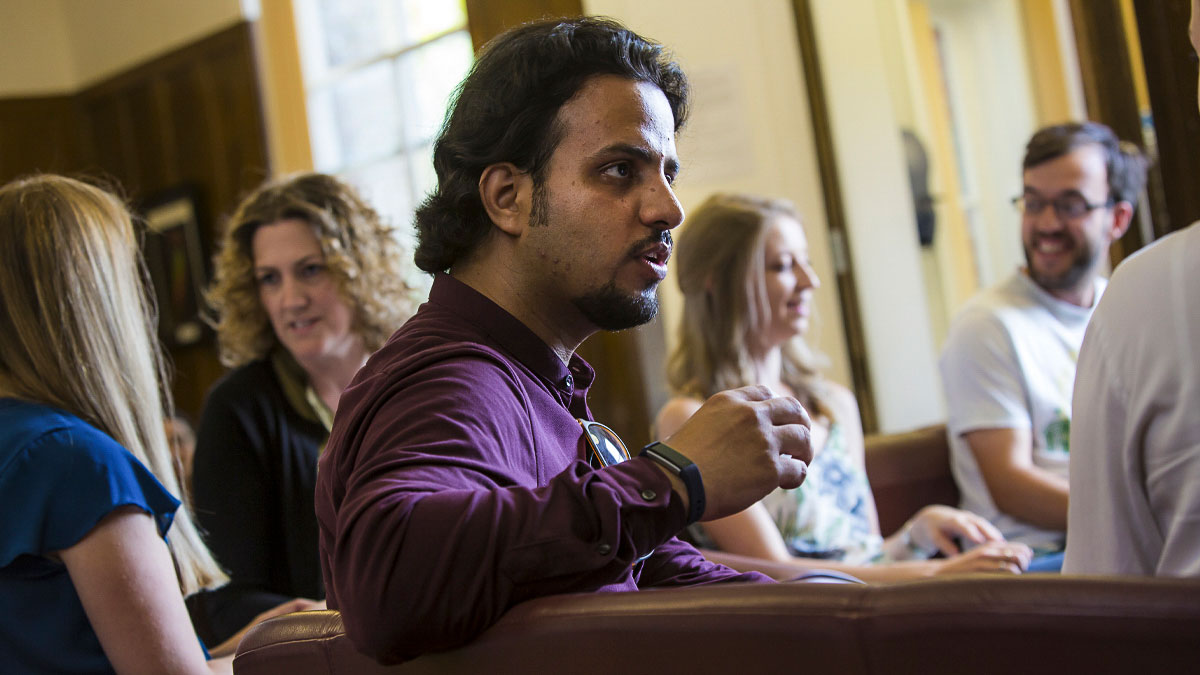As a postgraduate research student in the School of Agriculture, Policy and Development at Reading, you will be part of a large and vibrant research community.
In addition to our established academic staff and current PhD students, your work will be supported by postdoctoral researchers who recently completed their PhDs and understand your needs first hand.
One of the key advantages of undertaking your PhD at Reading is the breadth of expertise available to you across the School. Our five academic departments specialise in a range of issues connected to agriculture, environment, policy, economics and development.
Life in the School
The School of Agriculture, Policy and Development has a long-established track record for research, working with a wide variety of industrial and academic partners to achieve significant social and economic benefits.
We typically support the research of more than 100 postgraduate research students. This community is an integral and diverse part of the School, and we are proud to have more than 40 nationalities represented among our students.
Our postgraduate research students are supervised by internationally recognised researchers, many of whom have extensive experience of working or living overseas. You will also have many opportunities to interact with and learn from other students, both through academic study and social events.
You will be advised and assisted by our friendly, experienced staff throughout your time at Reading. You'll be provided with dedicated study spaces and have access to research facilities in our labs, glasshouses, controlled environment facilities, and farms.
We also provide a cafeteria and staff common room within the School, where you can meet up and chat about your research ideas.
Collaborative research environment
We have close research links with a number of UK and international organisations, including:
We also share active PhD projects with several other schools within the University, for example the School of Archaeology, Geography and Environmental Science (SAGES) and the Soil Research Centre (SOILS).
World-leading research
Our School is internationally recognised for its research excellence. Our research is driven by key global challenges and aligns closely with the 2030 Agenda for Sustainable Development. We are the highest placed UK University for Agriculture and Forestry at 20th in the world for teaching and research (QS World Ranking by Subject, 2025 - Agriculture and Forestry).
Conferences
Over the course of your doctoral research you will have opportunities to communicate your work and network with other researchers, present a seminar, speak at conferences and workshops, and visit or host researchers from elsewhere.
You'll attend research seminars hosted by the School or wider University, often featuring internationally renowned speakers. You will also have an opportunity to participate in UK, European or global research conferences and meetings.
Each academic department runs it own series of seminars and annual conferences. These provide an excellent opportunity to start building your network of research collaborators, and offer a place to discuss and develop your ideas.
Training
We aim to equip you with a wide range of research and transferrable skills. In the first two years of your course, you'll benefit from a programme of relevant postgraduate courses provided by the School, which will be agreed between you and your supervisors. You'll also take part in a programme of transferable skills training organised by the Doctoral and Researcher College.
Post-Graduate Research Association
The School of Agriculture, Policy and Development has a student body called The Post-Graduate Research Association (PGRA), dedicated to supporting you during your PhD studies with us.
The PGRA is a student-based association designed to assist you in your academic, and non-academic, career paths. It aims to improve and advance PhD students' experiences through advocacy, networking and leadership opportunities, training, and funding-opportunities.
The core vision of the PGRA is to provide a student-led support network and provide a platform for PhD students to express concerns, propose solutions, prompt discussion on matters that affect us individually and in the research community, and provide networking opportunities. As a starting PhD, you will be offered an experienced 'buddy' to get your research off to a flying start.
Childcare and support for students with family responsibilities
As well as offering ways to connect with other families by joining the PhD Parents at the University of Reading Facebook Group, there are two self-funded on-campus childcare facilities for pre-school children. Full details about these and about other childcare options including the school system in the UK can be found on the Doctoral and Researcher College.
